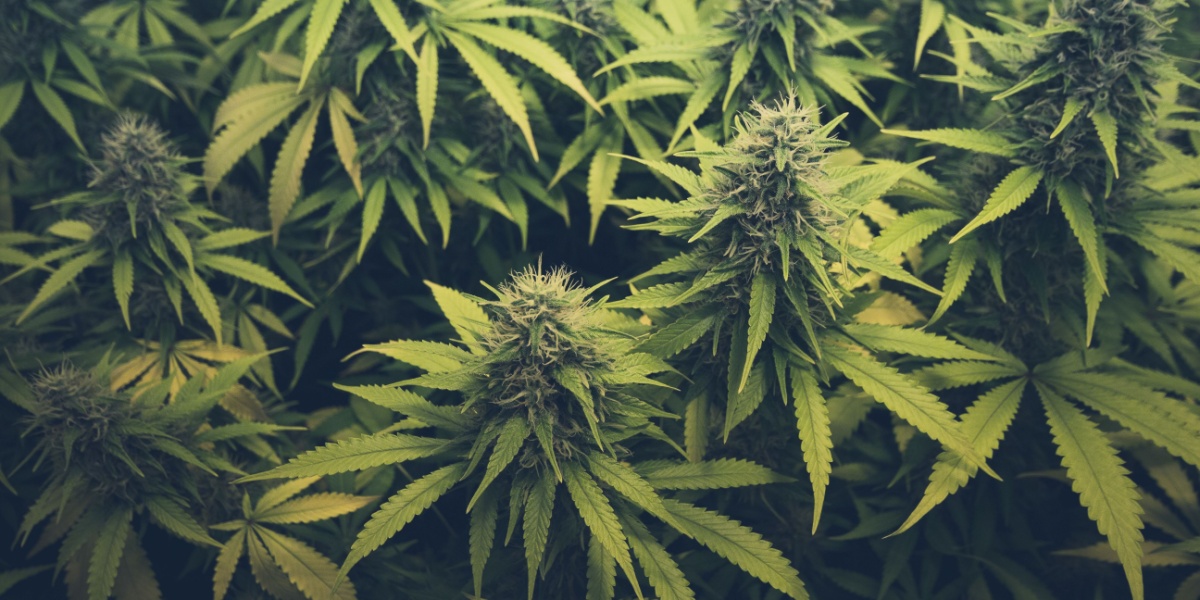While THC is widely recognized for its psychoactive effects, its precursor, THCa (tetrahydrocannabinolic acid), remains far less understood. Found naturally in raw cannabis, THCa is a non-psychoactive cannabinoid. It undergoes a chemical transformation known as decarboxylation when exposed to heat, converting it into THC–the compound responsible for cannabis’ intoxicating effects.
As interest in cannabis research grows, questions about THCa’s potential effects, benefits, and uses have emerged. Is THCa simply an inactive precursor to THC, or does it have unique properties worth exploring? Should it be consumed in its raw form, or is its value primarily in its transformation into THC?
This article will explore the science behind THCa flower, its origin, legal status, potential uses, and effects–both immediate and long-term.
- THCa is a non-psychoactive cannabinoid found in raw cannabis. When exposed to heat, it converts into THC, the compound responsible for intoxication.
- THCa has potential therapeutic benefits including anti-inflammatory and neuroprotective effects, but research is still in its early stages.
- THCa's legal status varies—while federally legal under the 2018 Farm Bill, some states regulate it due to its ability to convert into THC.

What is THCa?
Tetrahydrocannobolic acid (THCa) is the acidic precursor of the psychoactive cannabinoid THC. THCa, in its natural state, is non-psychoactive, but the heating, smoking, or vaping of it causes a chemical change. This process is called decarboxylation and converts THCa into its psychoactive counterpart, THC.[1]
Where does THCa come from?
THCa comes from the resinous molecules of the cannabis plant called cannabinoids. In 1896, scientists discovered a chemical called cannabinol in the cannabis plant.[2] This was the first “phytocannabinoid” ever found.
Phytocannabinoids are natural chemicals the plant makes. It wasn’t until 50 years later that scientists realized the plants don’t store these chemicals in their final form; instead, they store them in a different, acidic form–known as acidic precursors.
The plants keep them in an acidic form until they are decarboxylated. Cannabis stores cannabinoids in their acidic form, and when heat is applied, they convert into the active form that people recognize as THC.
How is THCa used?
THCa can be used for its medicinal properties by consuming it raw or ingesting edibles. Raw THCa can be consumed in smoothies or by juicing. This ensures that users do not experience the psychoactive effects while reaping the potential medicinal benefits. Edibles can come in the form of gummies, cookies, brownies, or other foods or snacks. It is crucial to determine if the THCa was heated before being added to the edibles to avoid its psychoactive effects.
THCa can also be ingested through the use of vape pens, cartridges, and smoking. Once THCa is heated, it will be converted into THC, the psychoactive compound that produces the “high” most marijuana users have experienced.
Many users will purchase THCa and use it as an alternative to smoking marijuana. [3] Because of THCa’s legal status, it can often be easily purchased in many states, so individuals will smoke or vape THCa to achieve the desired psychoactive effects.
Effects of THCa
When the vapor of a THCa vape is inhaled, the user is inhaling the same psychoactive component found in marijuana.
The study of THCa is popular among clinicians, and the non-psychoactive effects make it attractive in certain circles. However, the contamination of THC when heating THCa is virtually unavoidable, making a full-fledged pharmacological exploration unstable. [4][5]
Immediate effects
When the THCa flower is smoked, the side effects include euphoria and relaxation, altered perception, impaired memory and cognition, dry mouth and increased thirst, bloodshot eyes, increased heart rate, anxiety, and paranoia.[6]
Long-term effects
Teenage users have an increased likelihood of developing longer-term side effects, which have been linked to adverse effects like dependency, withdrawal effects, or even THC addiction.[6] Respiratory problems can develop as a result of smoking THC, including chronic bronchitis. Excessive usage of THC can increase the likelihood of mental health conditions like anxiety, depression, and psychosis.
Potential benefits of THCa
THCa is largely psychoactive due to its inability to influence cannabinoid receptors in the central nervous system, which are responsible for the “high” marijuana users report. This has led to research on the potential clinical benefits it can offer, similar to its THC counterpart without the intoxication, providing an opportunity for extensive medical opportunities.
Research on THCa is early and ongoing, but therapeutic effects have been proposed. [7] THCa has been linked to anti-inflammatory properties. This may benefit conditions characterized by inflammation, such as arthritis.
THCa shows potential for the application of treatment of neurodegenerative diseases such as dementia. THCa has demonstrated neuroprotective properties in animals, suggesting its potential for treatment in diseases like Alzheimer's.[2][7]
THC may help alleviate nausea. It is particularly useful for patients undergoing chemotherapy or nausea-related medical conditions.
THCa contains antioxidant properties. Adding THCa to your diet may help defend cells against stress and damage related to the potential chemical unpredictability of our living environment.
Other non-psychoactive cannabinoids are being explored in pediatric clinical trials for epilepsy. [7]
Is THCa addictive?
As with any substance, there are risks associated with taking THCa. Before adding anything to your diet for potential health benefits, it is best to consult your doctor.
The non-intoxicating nature of THCa represents non-toxic pharmacological potential with a low risk of drug addiction-related disorders.[8] Although users may rely upon its effects for pain relief, inflammation reduction, or neuroprotective benefits, it is extremely unlikely to lead to addiction.
As we’ve learned, exposing THCa to heat results in decarboxylation, which turns it into THC. This conversion changes the substance into a psychoactive component, which increases the likelihood of intoxication, impairment, and potential misuse or addiction.
THCa legal status
The 2018 Farm Bill established a federal threshold for the legal amount of THC in cannabis at 0.3%.[6][9] Cannabis with this amount of THC or less is considered hemp. Cannabis with more than this amount is still subject to persecution as it's considered a controlled substance at the federal level. Individual states may interpret these laws in different ways, offering a possible loophole for consumers seeking the euphoric effects of cannabis.
Businesses in Michigan, for example, may decarboxylate THCa into THC if obtained from a processor licensed under the Michigan Regulation and Taxation of Marihuana Act (MRTMA). [1]
In less liberal states like Florida, only THC is banned as part of the state’s medicinal marijuana laws; in Texas, there are no restrictions on Farm-Bill compliant THCa. [6]
Unregulated THCa
For THCa to remain at a low risk of abuse, it must not be exposed to enough heat to keep it from turning into the more habit-forming THC counterpart. Since THC does trigger dopamine release in the brain (unlike THCa), this can lead to more habitual use and, in some cases, dependence.
However, the lack of regulation of the cannabis industry in some regions can lead to contamination and impurity of THCa, meaning THCa products can be blended with harmful substances or even contain misleading labels.
Dangers of unregulated THCa
THCa products are at risk of impurity if no standards are established. The cannabis may have been exposed to enough heat for the THC properties to leak through and cause intoxication.
Without a standard, consumers may be exposed to inconsistent quality or production. Some products may contain significantly higher amounts of THCa than others, which can cause adverse effects.
Getting help
While THCa itself is non-psychoactive, if it is heated or converted into THC, it may contribute to cannabis dependence over time. If you or someone you know is struggling with THCa use, you can find help through various resources specializing in cannabis dependence, substance use treatment, and mental health support.
The SAMSHA National Helpline is a support service that is free and confidential and provides a 24/7 helpline for substance abuse support. It can connect you with treatment centers and local resources.[10]
Marijuana Anonymus is modeled after Alcoholics Anonymous (AA) and provides online or in-person meetings.[11]
The National Institute on Drug Abuse has research-based information on cannabis dependence and recovery.[12]
Talk to a mental health or medical professional for therapy options. Look for licensed therapists in substance use treatment and addiction specialists.



-guide-detail.jpg?v=1756808755)
_-Effects,-Benefits,-and-Risks-guide-detail.jpg?v=1741683488)